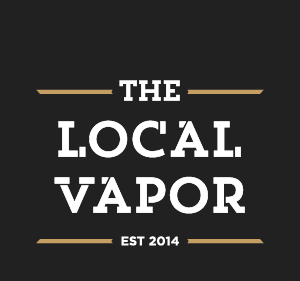When you buy eliquids from The Local Vapor, you’re buying products that aren’t always mixed locally.
And that’s exactly the way the owners want it.
“We did think pretty hard about that decision,” says Ken Cala, executive director at the Local Vapor. “And we wanted to offer something a little different.”
Rather than mixing liquids in-house, Ken and his colleagues have chosen to work with state-of-the-art labs around the country, stocking their Doylestown and Ambler stores with high quality products.
This isn’t to say there aren’t local vaping companies mixing their own liquids in a lab setting, following a clean room standard, and sourcing the best nicotine, VG/PG, and flavor extracts. “We seek them out as well and love supporting local brands. It’s just that there are a lot of local shops more concerned with maximizing profits rather than seeking out the highest quality product.”
“I know a lot of shops aren’t following these standards,” Cala said. And this is also due partly because the industry is still lacking much needed regulation. A few things are obvious and need to change.
The liquids sold by the Local Vapor come from all over the country, although they strive to carry local brands such as Keystone and Vapor Chef, aiming to work with vendors that have good reputations while offering unique flavor profiles as well.
As vaping grows in popularity, customers are becoming more educated. They expect things like pharmaceutical-grade ingredients and independent lab results that test for trace elements of anything potentially harmful or questionable.
And Ken says quality is going to become more and more important as the Food and Drug Administration becomes more involved in the e-cigarette industry.
The industry is also facing a massive regulatory burden at the production level as well. As of today, the FDA’s proposed regulations governing e-cigarettes are slated to be much the same as that of the tobacco industry. The same restrictions will be expected for all vaporizers and eliquids that hit the market after a grandfathered date of 2007, which encompasses virtually 99% of them.
However, in a recent victory for the vaping industry, the House Appropriations Committee just advanced the Cole Bishop amendment that would change the predicate date and allow vaper products currently on the market not to go through exactly the same, expensive certification process. While this is a step in the right direction, the amendment is unfortunately part of a larger funding-related bill. And that bill (as a whole) will not be voted on until later in the year.
Because most e-cigarettes didn’t exist in 2007, nearly every electronic tobacco product on the market would need to be pulled from shelves until it passed an FDA review.
While it may take some time to sort out, the FDA will ultimately continue taking a closer look at the vaping industry. And when that happens, “the stores that are mixing their own liquids in a back room may not have the funding and resources available to pass through that certification process,” Ken said.
Meanwhile, stores like The Local Vapor will have an edge. “We’re already been using brands that are preparing for all of this.”
“When there’s a vape shop on every corner,” Ken said, “people will know we were doing it the right way from the start.”

